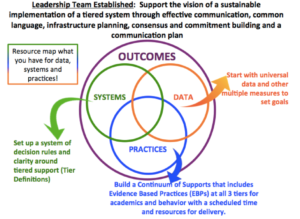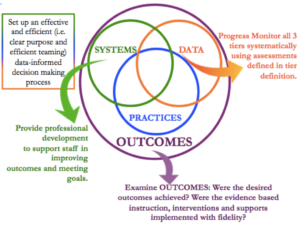by James C. Sherlock
I have written here extensively about the pre-COVID state of learning in Virginia’s public schools and my concerns about COVID school closure learning losses exacerbating the issue.
Those learning losses have come to pass.
McKinsey & Company just published a study of the results from Curriculum Associates testing. That in-school sample consisted of 1.6 million K–6 students in mathematics and 1.5 million in reading. The sampling that required in-school testing favored states that opened earliest for in-person schooling.
The outcomes were hugely troubling.
The math sample came from all 50 states, but 23 states accounted for 90 percent of the sample. The reading sample came from 46 states, with 21 states accounting for 90 percent of the sample.
Regardless, the sample size was huge and the results can be considered solid.
The findings:
“Our analysis shows that the impact of the pandemic on K–12 student learning was significant, leaving students on average five months behind in mathematics and four months behind in reading by the end of the school year. The pandemic widened preexisting opportunity and achievement gaps, hitting historically disadvantaged students hardest. In math, students in majority Black schools ended the year with six months of unfinished learning, students in low-income schools with seven.”
“The initial shock was especially severe in math, with students learning little, if anything, during the initial spring shutdowns.”
“The initial shock was less severe in reading, but losses continued to build up over the 2020-21 school year.”
“And the crisis had an impact on not just academics but also the broader health and well-being of students, with more than 35 percent of parents very or extremely concerned about their children’s mental health.”
“The fallout from the pandemic threatens to depress this generation’s prospects and constrict their opportunities far into adulthood. The ripple effects may undermine their chances of attending college and ultimately finding a fulfilling job that enables them to support a family.”
The results comport with common sense.
On the baseline of the poor-to-horrible pre-COVID 2018-19 SOL results in some Virginia schools, such learning losses represent a generational catastrophe. Even with effective action, some of those kids are lost.
We must try to help as many as we can.
Funding. There is a ton of money available to address these issues. The federal government has already committed more than $200 billion to K–12 education over the next three years, most of it through the Elementary and Secondary School Emergency Relief Fund (ESSER), of which 90 percent flows to districts and 10 percent to state education agencies.
Districts are facing competing demands for even that much money.
Better ventilation systems are useful, but not as important as the futures of an entire generation of children.
What would we do without experts? There has sprung up, of course, a “Coalition to Advance Future Student Success” to advise school divisions on how to spend that federal money.
That organization’s priorities:
1. Safely reopen schools for in-person learning.
2. Reengage students and reenroll them into effective learning environments.
3. Support students in recovering unfinished learning and broader needs.
4. Recommit and reimagine our education systems for the long term.
No details yet on number 3.
VDOE. The Virginia Department of Education (VDOE) has published Virginia L.E.A.R.N.S. 2021, last revised in May. It recommends:
“Implement a multi-tiered framework of supports that integrates universal practices focused on student well-being throughout the curriculum and layers on additional supports for those students who may need more targeted or individualized supports.”
We’re on it.
Next step from VDOE is an old friend:
“Delivery of social-emotional learning (SEL) curriculum and supports to all students PK-12.”
VDOE concedes that “students with disabilities may encounter learning loss as a result of school closures during the COVID-19 pandemic”.
It asks the question
“What additional accommodations, modifications, specially designed instruction and/or remediated instruction does the student need to
access the new curriculum?”
A key recommendation of four part answer:
“Refer to Virginia Tiered Systems of Support (VTSS) COVID-19 update to inform revisions to curriculum and instructional practice.”
VCU School of Education and VTSS. I read the VTSS webpage and associated links. You are welcome to do so.
VTSS is run by another old friend, the VCU School of Education. VCU, amid fierce competition, runs the most radical ed school in Virginia. So of course VDOE selected VCU to run its VTSS program. It would not be nice of me to characterize that program.
So I will let VCU do it. Divisions are encouraged by VTSS to “bookmark this page”:
The Virginia Tiered Systems of Supports (VTSS) integrates academics, behavior, and mental health into a single decision-making framework for establishing the supports needed for a school to be an effective learning environment for all students. Building this framework is a complex and iterative process. This process requires extensive collaborative dialogue, ongoing and embedded professional-learning, effective problem-solving, and compromise.
VCU’s two “Big Ideas of VTSS Implementation”:


Big ideas indeed. Re-purposing 50 years of multi-disciplinary management charts.
Note the “provide professional development” recommendation. Nest feathering 101. I wonder how much taxpayers paid for that unique insight?
Bottom line. Forget inflation, street gangs and drug dealers.
Virginia’s graduate schools of education represent the most dangerous threat to the children of Virginia.
The ed schools and much of the administrative “educator” class who have taken their graduate school courses will be worse than useless as a resource to help school divisions remediate learning losses while simultaneously improving basic teaching and learning systems. So, packed with graduate ed school graduates, will VDOE.
Their single minded focus on Diversity, Equity and Inclusion (DEI) and its Social Emotional Learning (SEL) offshoot has left no room for improvements to core reading, math and other academic results, much less remediation of COVID losses.
The school divisions are on their own. Hopewell has shown that divisions can innovate.
We both wish and need them to succeed.

Leave a Reply
You must be logged in to post a comment.